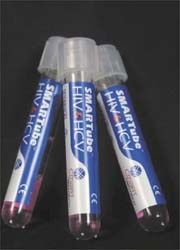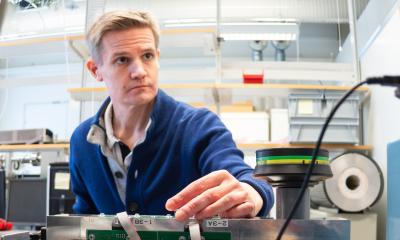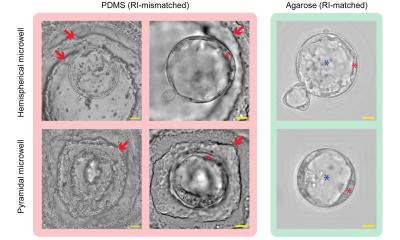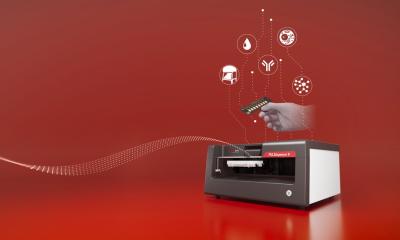The SMARTube
"Pushing the immune system to its limits, but it works," says Samuel Gebert MBA. Dip. Biology, of BioSam, Müllheim, Germany.
SMARTube technology enables super-stimulation of lymphocytes, which leads to enhanced production of antibodies in vitro. This enables better and earlier detection of infections.

There is a ‘window period’ of weeks and months from the time of HIV or HCV infection to the time of serum-conversion. Infected yet serum-negative individuals are infectious and their blood transmits the infection to unwary recipients. Infected individuals who are misdiagnosed as negative are a source in spreading the infection further. More complete detection is the key to curtailing the epidemic.
Antibody-based blood tests are independent of the location of the pathogen (virus) in the body, and thus can be positive through the whole course of the infection. In order to use the antibody’s powerful diagnostic potential we need to be able to detect the immune potential for making virus specific antibodies, independently of their expression in the body. Stimunology, using the SMARTube, does that. Thus it holds the key to better, more complete, earlier detection of HIV and HCV infections.
Stimunology means pushing the immune system to produce the antibodies that it knows how to make (by virtue of exposure to the virus) even before they are naturally produced in the body. Stimunology is a proprietary, technology platform.
The SMARTube is a simple to use, cost-effective blood pre-treatment device, for more complete, detection of HIV and HCV carriers. It is not a diagnostic test; it is just a test tube with a proprietary solution in which a small blood sample is incubated prior to testing for the presence of HIV and HCV specific antibodies using commercially available kits (both for screening and for confirmation).
The system has been tested in controlled clinical trials in Israel, China, Mexico and Africa, and has been registered in EU (CE Mark) and in Israel. FDA registration for the USA is commencing.
15.11.2007





